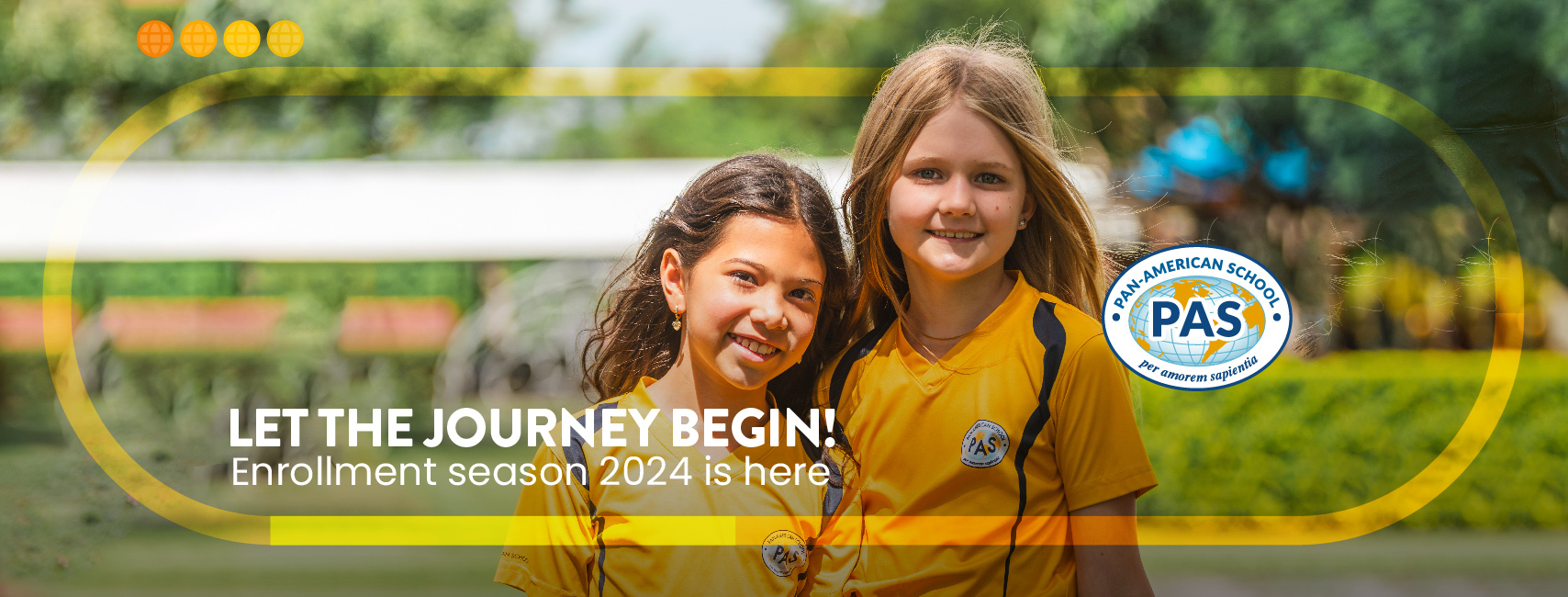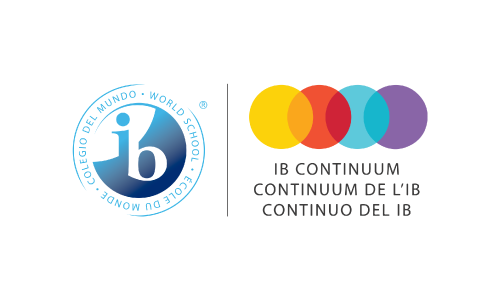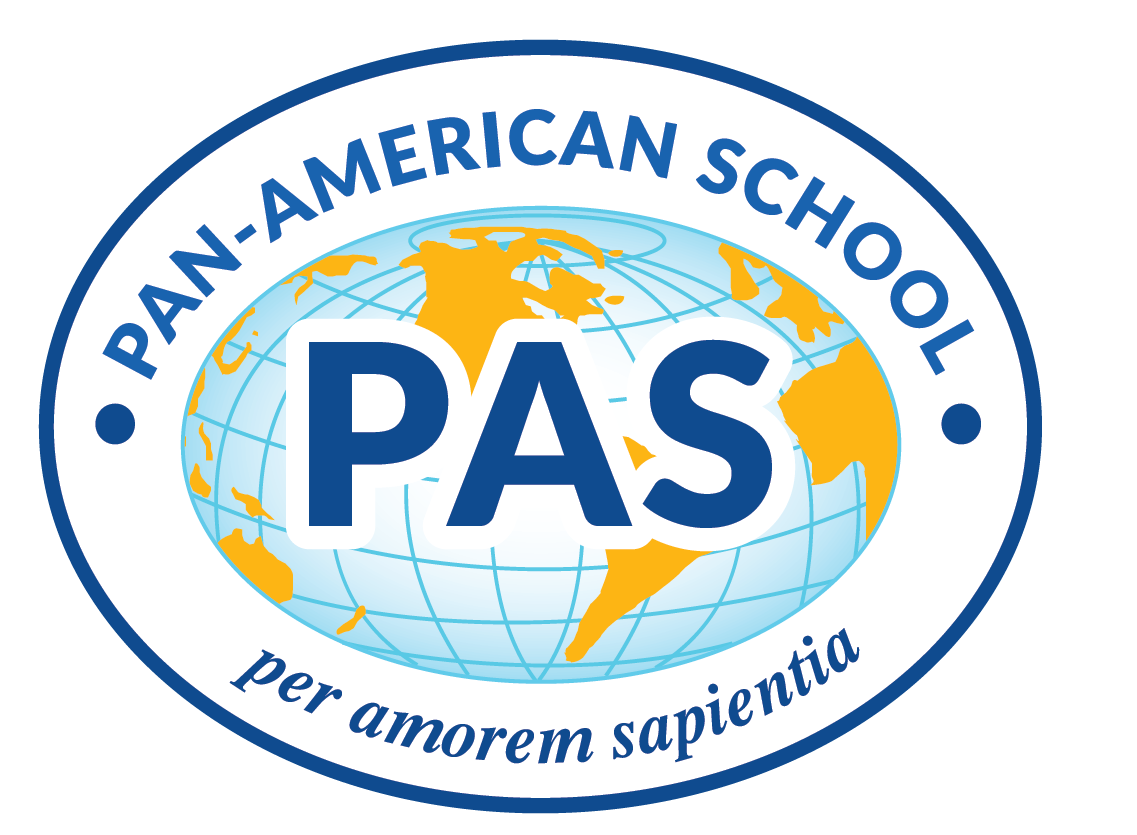
Pan-American School is the first IB Continuum School offering the International Baccalaureate (IB) Diploma Programme (DP), Middle Years Programme (MYP), and Primary Years Programme (PYP) in Costa Rica.
Our inclusive, non-selective educational programme provides a balanced, bilingual English-Spanish education, aimed at developing well-rounded, responsible global citizens.
Our broad and rigorous curriculum focuses on skill development, an extensive social and emotional support system, diverse arts, design, and physical education programs, and a unique focus on service and global sustainability.
Welcome from our General Director
Alan Wrafter
General Director
Welcome to Pan-American School, and thank you for taking the time to visit our website. We invite you to explore our community, and learn more about how we strive to offer an education of excellence that inspires future leaders who will create a better world for all.
Pan-American School is dedicated to creating a diverse and inclusive learning community focused on delivering:
- Inspiring, personalized learning for all.
- A welcoming, engaged and connected community for all.
- A sustainable and balanced future for all.
Uniquely PAS
Years of experience
Nationalities represented
43
International Students
28 %
Student teacher ratio
6:1
Average class size
18
Campus
8.64 acres
5 Buildings
Languages taught
English - Spanish
IB courses offered
23
IB DP highest score (2021)
44/45
Years as an IB World School
Colleges Acceptances (Continent/Universities since 2017)
Europe
55
Asia
13
America
189
Oceania / Australia
7

Therapy Dog
1
Why PAS?
- Accredited as an IB World School by the International Baccalaureate Organization, since 2015.
- Accredited by the New England Association of Schools and Colleges Commission on International Education (NEASC-CIE) in the United States since 2006.
- Only school in Costa Rica to offer the IB Continuum Programme: Primary Years Programme (PYP), Middle Years Programme (MYP) and Diploma Programme (DP).
- PAS nurtures the whole child and empowers students to have agency over their learning from age 18 months to graduation.
- Students can graduate with three diplomas: IB Diploma Programme, US High School Diploma and the Costa Rica Ministry of Education National Diploma.
Why The IB Continnum?

Pan-American School is an IB continuum school, focussing on both personal and academic achievement and challenging students to excel in these areas. We believe that learning is an active and lifelong process and that a well-rounded education includes logical reasoning, languages, artistic sensitivity, social awareness, physical and mental health, and critical thinking. Each person’s special interests, qualities, and talents are nurtured through real-life learning experiences and diverse educational opportunities. We support our students to develop a social conscience and a commitment to peace, democracy, cultural diversity, and service to humanity.
News at PAS
Innovation, technology and more - PYP Exhibition
The PYP Exhibition is a culminating event in the PYP programme, where our learners showcase their understanding and learning journey through their time in primary school by connecting to real world issues, engaging in collaborative inquiry and taking meaningful action. The exhibition encourages learners to demonstrate their understanding of the learner profile attributes, approaches to learning and the inquiry process. Over the 8 weeks of this year's exhibition, grade 5 learners have been inquiring into a topic of their choice, all within the context of technology. This year's exhibition included an expressive piece, an interactive piece and a written piece, based on their research. Grade 5 learners were excited to share their PYPX journey with their parents and other students in the school and want the grade 4's to know that it's a lot of work, but it's really not that scary in the end!
Staff Development Day
On Monday, March 18th, the Pan-American School community held a Professional Development Day focused on community and country service. The following activities took place:
- Guacalillo Beach: A total of 142kg of beach litter was collected.
- SOS Villages: Cleaning, organizing, and painting works were carried out on the houses where the students live.
- Food Bank: Food items, vegetables, and supplies were reviewed and classified.
- Teaching and Learning Center (CEA): Located in Guácima, work was done in the garden, library, and mural painting.
A total of 167 people attended these activities.
PAS SOCIAL IMPACT
PAS SOCIAL IMPACT
Our commitment is not only to support the learning process of our students; but also to contribute to the society that surrounds us, our mission is preparing internationally-engaged individuals, committed to the pursuit of excellence, who make meaningful contributions to their country and the global community.
That is why at PAS, we gladly work to play a positive role in our community, taking into consideration the impact that our decisions have on social and environmental matters. Proudly, we can say that these are just some of the activities carried out:
Embracing the Future: Our Journey Towards Integrating AI in Education
Embracing the Future: Our Journey Towards Integrating AI in Education
As we navigate through the rapidly evolving landscape of technology and education, it's essential to continually adapt and embrace innovative tools that can enhance our learning environment. In this spirit, I would like to share the steps we have been taking to develop a comprehensive AI Policy and Strategic Development and Implementation Plan, guided by a series of carefully crafted AI Principles based on research and a review of current best practice guidance.
The Importance of AI in Education
Artificial intelligence (AI) is no longer a futuristic concept; it's a present reality transforming industries, including education. At Pan-American School, we recognize the immense potential AI holds in revolutionizing the way we teach and learn. From personalized learning experiences to automating administrative tasks, AI can significantly enrich our educational landscape, making learning more efficient, engaging, and tailored to individual needs. Indeed, it is currently being used by a range of teachers and administrators for just those tasks - and now, we feel that we are at a stage where we need to intentionally guide and shape these efforts, to ensure that we maximize the potential for impact for each member of our community.
Our Process: Crafting AI Principles
The journey towards integrating AI into our curriculum began with the development of a set of AI Principles. This critical step involved extensive research, collaboration, and thoughtful discussion among a committee of educators, and peers around the globe. Our aim was to outline a framework that reflects our school's values, prioritizes ethical considerations, and ensures the responsible use of AI in our community.
These principles will serve as the foundation for our AI Policy and guide our strategic planning and implementation process. They emphasize the importance of transparency, inclusivity, privacy, and security, ensuring that AI technologies are used to enhance educational outcomes without compromising our ethical standards.
AI Principles for Pan-American School
Following extensive research and review, the working group has developed the following principles which will inform the development and implementation of AI in all aspects of community life:
- Ensure Human Agency through AI. Ensure human decision-making guides AI’s contribution to learning. Use human agency to actively guide and instruct AI systems to empower ownership of the learning process, enhance the understanding of AI as a tool for learning, and develop leadership skills.
- Empower Through AI Literacy and Lifelong Learning: Teach AI literacy as a fundamental component of the curriculum, ensuring students understand how AI works, as well as its societal and environmental impacts. Promote lifelong learning which enhances personalized learning, nurtures individual passions, and fosters excellence.
- Advance Equity and Inclusion: Ensure tools and resources are accessible to all learners and create an inclusive environment that respects, values, and promotes diversity. Promote equitable opportunities for excellence in learning and personal development by avoiding bias and ensuring fairness in decision-making.
- Foster Ethical Understanding and Critical Thinking: Integrate ethical considerations and critical thinking into all aspects of the learning process such as: teaching students to recognize and reflect on ethical dilemmas in AI; addressing issues of privacy, bias, and plagiarism; and encouraging the questioning and critical evaluation of AI technologies and their applications.
- Develop a Connected AI Learning Community: Cultivate a vibrant, engaged, and connected learning community that fosters collaboration, conversation, and shared innovation, enhancing our commitment to making a positive local and global impact through creativity, teamwork, and the application of AI across various contexts.
- Prioritize Safe and Responsible AI Citizenship: Prioritize the responsible use of AI, emphasizing data security, personal safety online, the importance of respecting others' privacy, and personal accountability in the digital realm.
- Innovate Through AI: Position Pan-American School as a hub of high-quality learning and innovation, integrating cutting-edge AI technologies and methodologies into the learning process in order to prepare future-ready, global citizens.
These principles were developed by the following committees (in alphabetical order):
- Alan Wrafter, General Director, roundtable participant at the Advancement of International Education AI Working Group (Feb 2024)
- April Gudenrath, Head of English
- Edison Valverde Quirós, Science & Outdoor Learning Teacher
- Joshua Aaroon Tercero Loría, MYP Design Coordinator, Design Instructor at Universidad LCI Veritas
- Melissa Castillo, Science Teacher, Coordinator of Master's Degree in Educational Technology and Innovation (Universidad Nacional de Costa Rica), and presenter at the Congreso de Innovación Educativa CIIE 2023 (Tecnológico de Monterrey)
- Oscar Echandi, I&S, Digital Society and TOK Teacher
A list of references can be found at the end of this post.
AI Policy and Strategic Development and Implementation Plan
With our AI Principles in place, we will now start the development of our AI Policy, and Strategic Development and Implementation Plan. We aim to develop a strategy which will outline how we will integrate AI technologies into our curriculum across the IB continuum of education (PYP, MYP, and DP) over the coming years. Our aim will be to adopt a multidimensional approach, focusing on curriculum development, teacher training, infrastructure upgrades, and continuous evaluation to ensure our objectives are met.
Liminal Spaces: The Excitement of Harnessing AI in Learning
We recognize that we are currently in a “Liminal Space” - a time between stories, where much of what has come before appears to lose relevance and reliability as we look to create new stories that have not yet been told. While it is true that there is much to be concerned about in how AI might be used, and the ways in which it is already impacting areas such as social media, work, as General Director, I am genuinely excited about the possibilities that AI brings to our educational community and the opportunities that we have to help develop a future vision that is positive, productive, and impactful on future generations.
We will work to create a reality where: AI tools provide real-time feedback to students, adapt learning materials to suit individual learner needs, and offer immersive, interactive learning experiences; where our educators are supported by AI to enhance their teaching strategies, reduce their administrative workload, and focus more on the personal and intellectual development of each student; and where our students are encouraged to be architects of a new future and create the stories that will inform the world they will inhabit and thrive in into the future.
This is not just a vision; it's the future we are aiming to build at Pan-American School. Our commitment to integrating AI into our educational practices is a testament to our dedication to providing an innovative, holistic education that prepares our students for the challenges and opportunities of the 21st century.
Moving Forward Together
The journey towards embracing AI in education is both exciting and challenging. It requires careful planning, collaboration, and a commitment to our core values. As we move forward, I am confident that our community will come together to harness these opportunities, ensuring that Pan-American School remains at the forefront of educational innovation.
Thank you for your continued support and enthusiasm as we embark on this transformative journey together.
Warm regards,
Alan Wrafter
General Director
References
Cherniske, M, Ishihara, T, Kalaleh, H, et al (2024, January) Human-Centered AI Guidance for K-12 Public Schools. OSPI
Chiu, T. K. (2020). Six Key Principles in Designing Artificial Intelligence (AI) Curriculum for Middle Schools. rdannual, 383.
Holmes, W., & Miao, F. (2023). Guidance for generative AI in education and research. UNESCO Publishing.
Kim, J., Lee, H., & Cho, Y. H. (2022). Learning design to support student-AI collaboration: Perspectives of leading teachers for AI in education. Education and Information Technologies, 27(5), 6069-6104.
Langley, P. (2019, July). An integrative framework for artificial intelligence education. In Proceedings of the AAAI Conference on Artificial Intelligence (Vol. 33, No. 01, pp. 9670-9677).
Miao, F., Holmes, W., Huang, R., & Zhang, H. (2021). AI and education: A guidance for policymakers. UNESCO Publishing.
Principles | AI Guidance for Schools Toolkit | TeachAI. (2023). www.teachai.org. https://www.teachai.org/toolkit-principles
Touretzky, D., Gardner-McCune, C., Martin, F., & Seehorn, D. (2019, July). Envisioning AI for K-12: What should every child know about AI? In Proceedings of the AAAI conference on artificial intelligence (Vol. 33, No. 01, pp. 9795-9799).
Wong, G. K., Ma, X., Dillenbourg, P., & Huan, J. (2020). Broadening artificial intelligence education in K-12: Where to start? ACM Inroads, 11(1), 20-29.
Events
PAS Professional Learning Hub
Thank you for joining us in this professional development opportunity!
Back to School - Second Semester
Jaguar’s Launch and more
Holiday Concert
Our dedicated students prepared a beautiful 🎵Holiday Concert🎶🎄
Check out all the photos of this event here.
